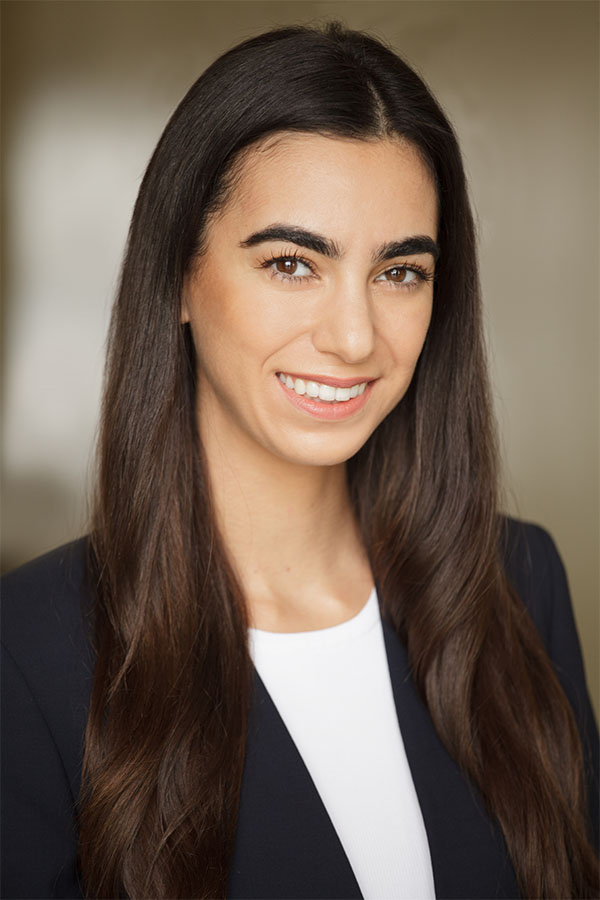 Nazgole Hashemi took a leap that’s increasingly common among recent law school graduates – she started her own firm, LegalAxxis Inc. The firm provides litigation and transactional services and also pro bono services to the disadvantaged. She is a 2013 graduate of Southwestern.
Nazgole Hashemi took a leap that’s increasingly common among recent law school graduates – she started her own firm, LegalAxxis Inc. The firm provides litigation and transactional services and also pro bono services to the disadvantaged. She is a 2013 graduate of Southwestern.
Lawdragon Campus: Tell us a little about what you are doing with your law degree. What is your current position and what do you enjoy about it?
Nazgole Hashemi: I co-founded LegalAxxis, Inc. with my sister after passing the California bar exam. Our main practice areas are civil litigation on the plaintiff’s side and business transactions. I also dabble in other areas of law based on curiosity or client need.
The firm also provides pro bono services to help disadvantaged individuals and families. Pro bono service is an important part of the legal profession’s history and future. We have been working with the Alliance for Children’s Rights for some years now, helping foster children obtain benefits and funding to which they are entitled.
What I enjoy most is pursuing people’s rights and ensuring that individuals are not unfairly or illegally taken advantage of by others.
I also enjoy the autonomy associated with running my own law practice. I am never limited by others in terms of how I want to advance my career or which cases to accept.
LDC: What did you learn at Southwestern Law School that you find most valuable in your current position?
NH: I was fortunate to have many opportunities at Southwestern Law School that still contribute to my professional goals and practice.
For example, Southwestern helped me hone my legal writing skills. Writing is important for both litigation and transactional work, whether it’s a letter to opposing counsel, motion before the court, communication with a client, or contract between the parties.
I also really enjoyed my practical evidence course, in which the professor acted as judge and the students as litigators. The course provided valuable insight as to oral arguments and demeanor before the court.
In addition, I have always been interested in appellate practice. Serving as a member on moot court provided me with the experience and comfort to pursue appellate work and for that I am grateful.
LDC: What did you like best about Southwestern – the environment, campus, classmates, clinic, moot court, a professor? How did that experience enrich your life?
NH: My favorite parts of Southwestern Law School were the faculty and administration.
Professor Michael Epstein provided me with great mentorship from the time I was his research assistant and then teaching assistant for his Business Associations course to present date. We recently even co-authored my first publication together. I informed Professor Epstein early on that at some point in my career I would like to teach law, in addition to practicing law. Professor Epstein continues to present me with opportunities and guidance to advance my mission.
LDC: What do you see in your future as a lawyer?
NH: I see myself continuing to litigate and provide pro bono services to the community.
I’ve also always had a passion for teaching. I would like to teach a practical course at a law school at some point. An opportunity to teach at Southwestern would be great! The courses would be related to either legal writing or civil litigation. The legal writing course would focus on various kinds of written motions, oppositions, and replies. Motions set the tone for both the court’s tentative ruling and oral argument. Presentation, grammar, and style are all very important, and must not get lost in the midst of argument.
The civil litigation course would focus on procedure, strategy, and communication. Students often leave law school not truly understanding the realities of civil litigation or the statutory requirements that are associated with even the most standard procedures. I’d like to teach a step-by-step course that combines the most difficult day-to-day realities of my own cases into a single hypothetical case for the students to litigate.
LDC: What advice would you provide today’s law students as they make their way through law school?
NH: My advice is to take as many practical courses as possible. Of course, it is wise to take a wide variety of theoretical courses, even if a student is certain about the area of law in which he/she wants to practice. The law is an interconnected web and it is beneficial to be able to identify a different area of law when it makes its way into one of your cases. However, the practical courses provide realistic exposure, which is very important because it helps one figure out what he/she enjoys doing. One of the keys to a successful law career is to derive some sort of personal satisfaction from the work. The practical courses provide good insight into relationships and negotiations with opposing counsel, research and writing efforts, procedure, and argument and demeanor before the court.
LDC: What is your favorite thing about being a lawyer?
NH: My favorite part of being an attorney is pursuing justice for my clients and protecting their rights.
I also enjoy formulating clients’ positions. I believe that a good attorney not only makes good arguments, but also conveys those arguments in an organized, professional, and persuasive manner. Forming a good strategy is also very important, and I enjoy the critical thinking that it involves. Each case or situation is unique in its own right and it is intriguing to figure out the best approach, especially when faced with uncooperative opponents.
